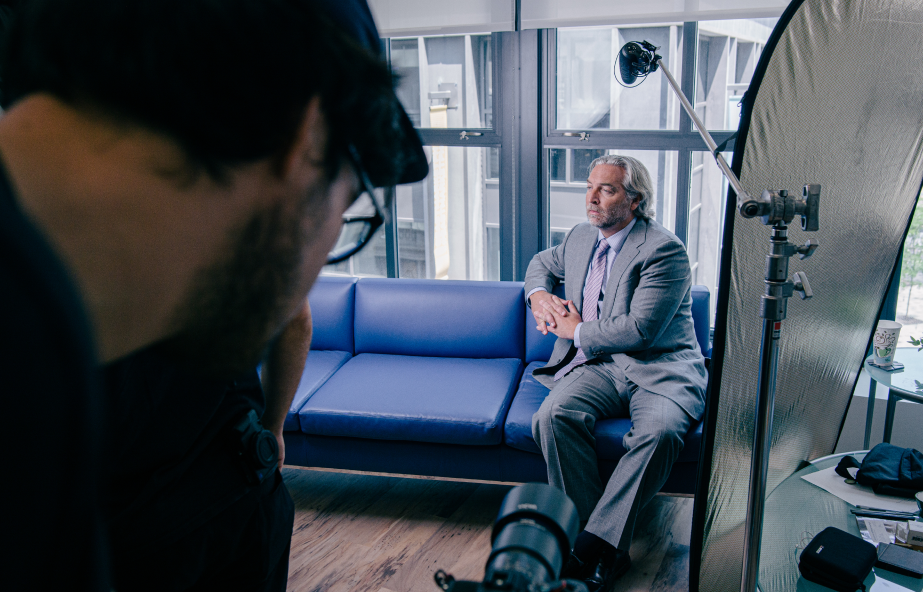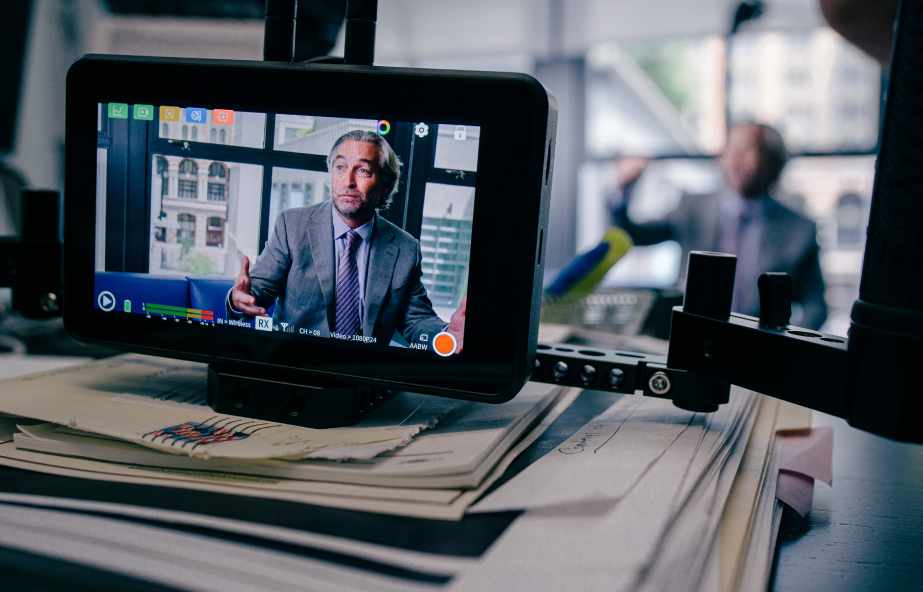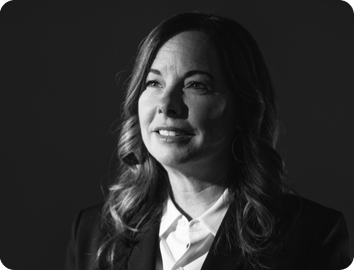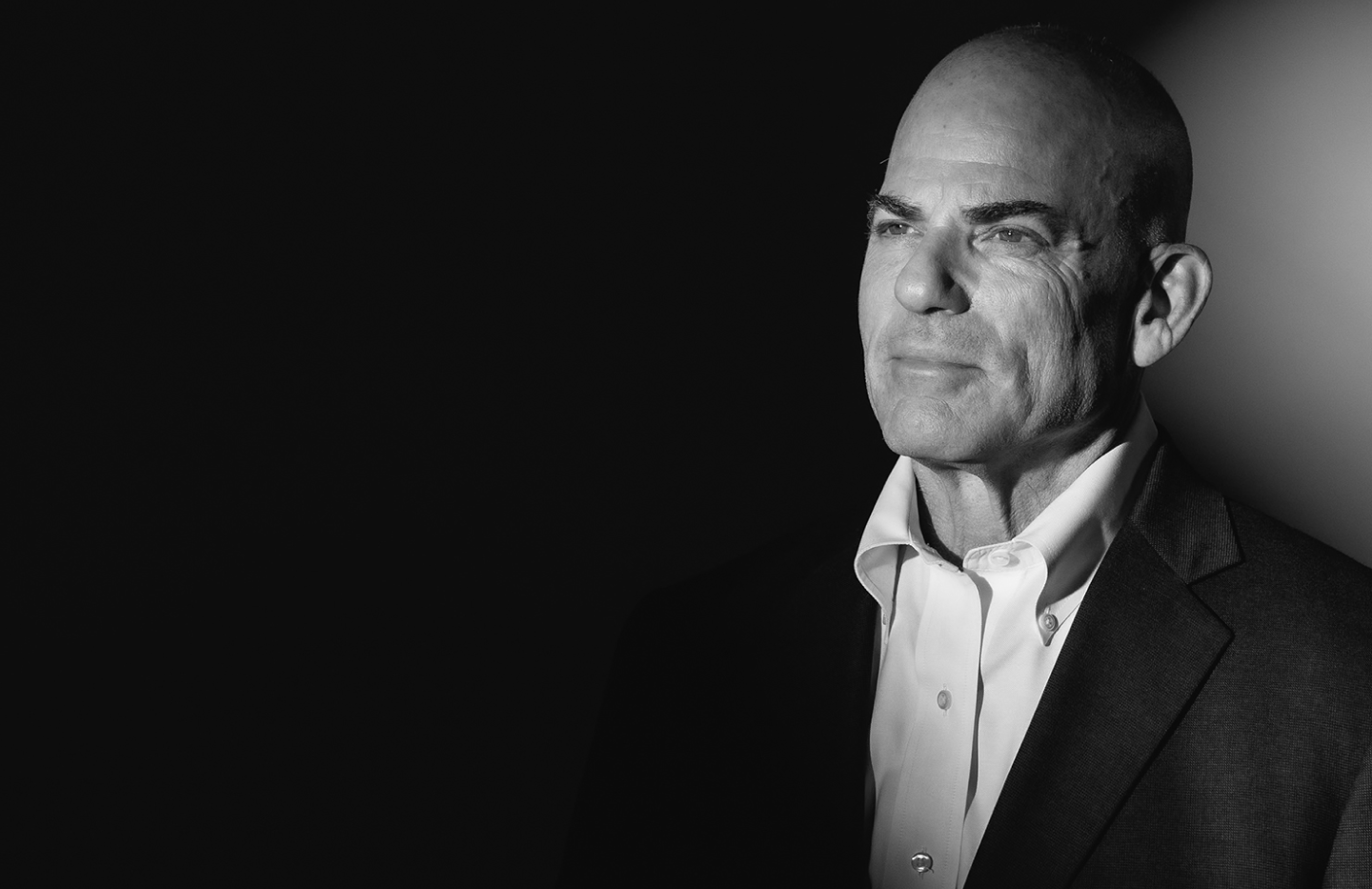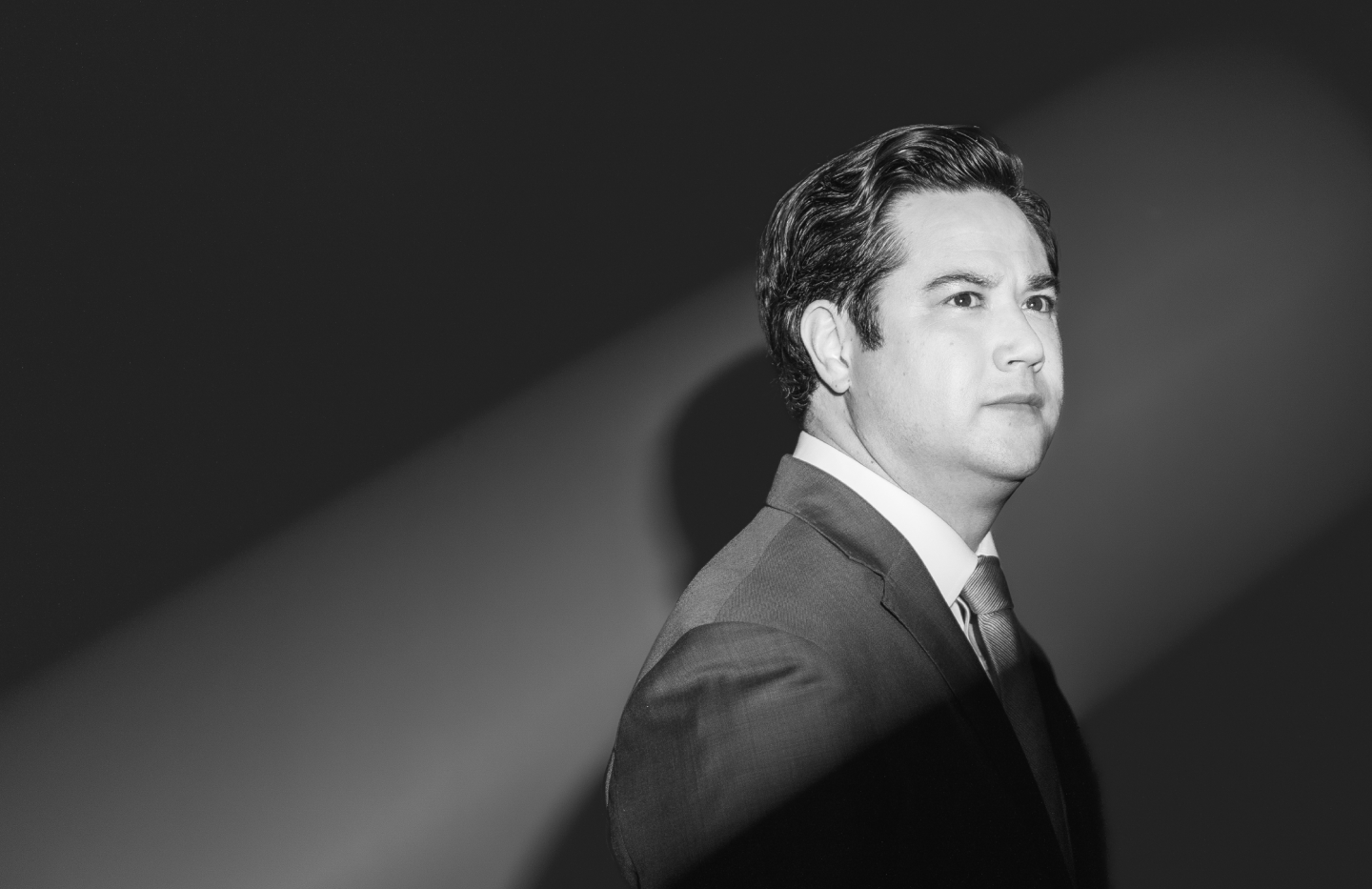Jeffrey LaffeyFounding partner at Laffey Bucci D’Andrea Reich & Ryan
Who safeguards the futures of those injured on the job?
Laffey Bucci D’Andrea Reich & Ryan,
that’s who.
Safer Sites and Safeguarded Futures
“The courts are an avenue of change. I believe that’s really what they’re set up to do,” said Jeffrey Laffey, a trial lawyer and founding partner of his Philadelphia-based personal injury law firm, Laffey Bucci D’Andrea Reich & Ryan, (LBDRR).
This sentiment neatly encapsulates his attitude toward working in the law. Because without trial attorneys like him or firms like LBDRR, institutions would continue taking advantage of their employees and/or vulnerable individuals.
“What I love about the law is that it’s about evening the playing field. It’s about holding institutions responsible for their egregious conduct,” Jeffrey said. “It’s about reminding companies that they do have a duty and they will be held accountable if they violate that duty.”
In 2009, Jeffrey Laffey founded LBDRR alongside his friends and fellow attorneys. More than a decade later, they’ve grown from four to 40 employees, including attorneys, paralegals, and staff. And even as they’ve grown and expanded into other practice areas, the LBDRR mission still rings true today: “giving catastrophically injured individuals and their families justice.”
LBDRR specializes in two practice areas: construction or workplace accidents and victims of crime or abuse. In their crime victim cases, LBDRR trial attorneys represent survivors, oftentimes children, who have been victimized at the hands of large institutions like churches, camps, massage companies, and healthcare locations.
For Jeffrey and his team, they’ve always been motivated to do what’s right by “the little guy” – no matter the case. “What I hope for, at least, is this common thread within the law that says fairness is everything,” said Jeffrey.
The perfect fit for finding justice
Jeffrey Laffey knew the legal profession was right for him since childhood. In his elementary school classrooms, he found himself advocating for friends that were being disciplined. This knack for persuasion was one reason he chose to become a trial lawyer. The other big reason: being raised the son of a union carpenter.
“I distinctly remember a time, I must have been 12 years old, when my father came home with a Christmas tree over his head…but he had a patch over his eye. He had been injured at work that day. I opened the door to let him inside, and he said something to me: ‘Stay in school, kid.’ It just hit home to me that my talents could be used for helping people who have been injured,” Jeffrey remembered. “[Today], it gives me a lot of pride to represent a union family because I know and share their values.”
Now, with 25 years of civil litigation experience under his belt, Jeffrey continues to use those values to fight for his clients as they endure such emotional and financial hardship.
“Our clients need their bodies to earn their living. I’ve seen the toll that it has on families when the main breadwinner [is injured] and the family is now deprived of an income,” Jeffrey said. “Lots of stress happens when people have to deal with pain on a daily basis. I can’t heal their injuries, but at least I can put them in a place where they can sleep better at night knowing that there is some financial stability to the instability that was caused by the negligence of third parties on the construction site.”
While his tireless grind is aimed at seeking and finding justice for his clients, it’s also about working toward a better, safer future for the construction industry as a whole.
“I do believe that [our work] will set the tone on future construction sites; to act as an incentive for a general contractor to be more proactive about safety to prevent future accidents. It will be a reminder for institutions to give [employees] proper training when dealing with children to make sure they are afforded a safe space.”
“It’s being able to meet [clients] where they are, taking the important parts of what they’re saying, and then turning them into a ferocity to hold someone accountable for their terrible acts.”
Jill Roth
Attorney at Laffey Bucci D’Andrea Reich & Ryan

“It’s being able to meet [clients] where they are, taking the important parts of what they’re saying, and then turning them into a ferocity to hold someone accountable for their terrible acts.”
Jill Roth
Attorney at Laffey Bucci D’Andrea Reich & Ryan
Person first, client second
A majority of a trial lawyer’s job involves dealing with uncertainty – whether from a client, the court, or their opponent. But for trial attorneys like Jill Roth at LBDRR, seeing her clients courageously endure such turmoil motivates her to find the justice they want and deserve.
As part of the LBDRR Crime Victims Team, Jill handles sexual assault cases among men, women, children, and the elderly. More specifically, she fights for those who’ve been injured, whether physically or mentally, in spaces where they were meant to be protected.
In one case, Jill recalls her client who had been sexually assaulted after she was involuntarily admitted to a hospital for a severe mental health episode:
“Because she was having this psychiatric break, they sedated her very heavily. She was put in a room by herself, and over the course of hours, she would come to in a state of grogginess [where] a man was sexually assaulting her. And at no point was any nurse tending to her during that time.”
Despite the woman’s pleading, the three nurses on duty dismissed her sexual assault claims. But that’s where a trauma-informed attorney like Jill could help intervene. With an extensive background in mental health, she built rapport with her client over the course of several months, enabling more awareness, empathy, and sensitivity around the case – an approach that helped secure a favorable settlement that ultimately changed the woman’s life.
“Our clients come from so many different walks of life, and they’re navigating what is likely the worst thing that they’ve ever experienced. So it’s being able to meet them where they are, taking the important parts of what they’re saying, and then turning them into a ferocity to hold someone accountable for their terrible acts,” Jill said.
“Through my legal career, I found that it’s very much not about me. It’s about making sure other voices are amplified. The fact that I happen to know the law and the intricacies of the court system [means] we can get their voices heard.”
Alexandria MacMaster
Trial attorney at Laffey Bucci D’Andrea Reich & Ryan
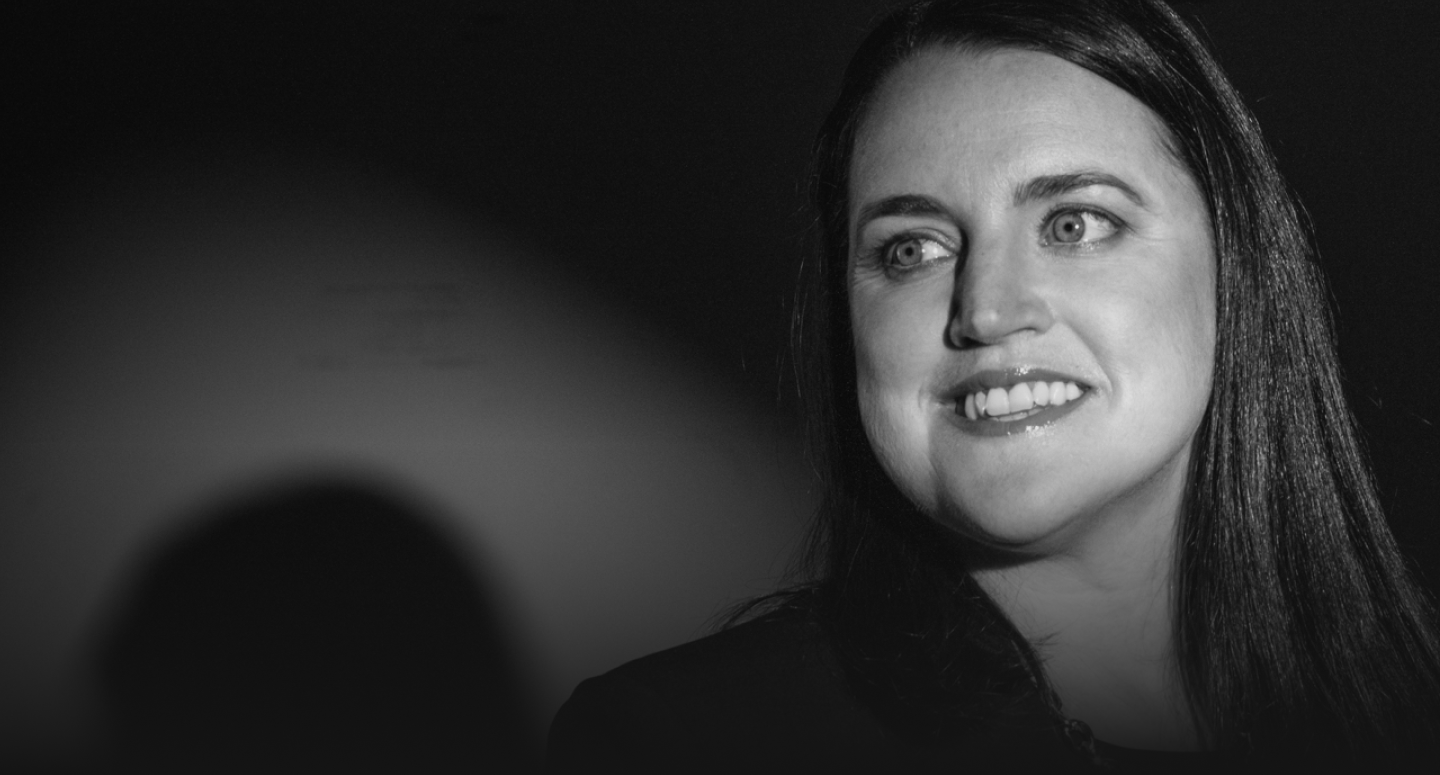
“Through my legal career, I found that it’s very much not about me. It’s about making sure other voices are amplified. The fact that I happen to know the law and the intricacies of the court system [means] we can get their voices heard.”
Alexandria MacMaster
Trial attorney at Laffey Bucci D’Andrea Reich & Ryan
Advocates for change
In shouldering some of their clients’ emotional turmoil, trial attorneys can be true advocates for them. For Alexandria MacMaster, another trial lawyer at LBDRR, she fights for survivors of sexual assaults and child abuse in institutional settings.
Survivors face the unthinkable battle of reliving their trauma through interviews, depositions, court dates, and more. Some come forward as adults having survived sexual abuse during childhood. But very often, the survivors are children.
“It is difficult for children to come forward about their abuse because they are being abused generally by someone they trust, someone in a position of power that does not explain to that child what they are doing is wrong,” explained Alexandria. “Having the courage to sit at a deposition or an examination with an expert from the defendant who allowed the abuse to happen…that is so much for someone to take on. Frankly, [focusing] on making sure our clients are okay is the priority.”
Through this emotional and assiduous work, trial lawyers can leverage these important cases to highlight gaps in the law that endanger vulnerable groups. “When we are trying these cases and exposing the court system to just how traumatic these types of assaults can be, the law starts to change,” Alexandria said.
Specifically, she cites a piece of legislation passed in March 2022 called the Ending Forced Arbitration Act as a monument to the tireless work of trial attorneys nationwide who’ve been fighting for survivors of sexual abuse for decades.
The American Bar Association says about 60 million workers (more than half of the non-unionized private-sector workforce) are subject to mandatory arbitration agreements, as of November 2022. These policies often waive a worker’s right to bring class claims and prohibit formal complaints against the company or individual – including claims of sexual harassment and/or assault.
“We represent many survivors of abuse who have been assaulted in massage locations. And part of [the Ending Forced Arbitration Act] referenced some arbitration clauses hidden in the paperwork clients fill out at massage locations,” explained Alexandria. “It’s something that allows me to see tangible change, and I’m excited about that.”
Better together: firms and financial partners
Affecting change in our justice system takes grit. Being located in Philadelphia, LBDRR had that part covered and then some. What they really needed in order to take on these complex cases – cases that often exceed six figures – was reliable cash flow.
“[The contingency fee model] is not traditional. It’s a risky business model. We take the risk of accepting a case and spend a significant amount of money dotting every I, crossing every T, and hiring the most qualified experts. That certainly isn’t cheap, but it’s what our clients deserve,” said Jeffrey Laffey.
Accessing cash flow is a challenge for the majority of contingency fee firms since they don’t recoup unless/until a case is won or settled. And because traditional banks don’t often understand the intricacies of a contingency fee firm, some may find themselves in over their heads before even starting a case.
But from the beginning, Jeffrey and his partners knew how important it would be to forge a relationship with an innovative financial partner. That’s why they sought out Esquire Bank.
“Esquire’s contributions to Laffey Bucci D’Andrea Reich & Ryan are immeasurable,” Jeffrey said. “Many things may keep me up at night about the facts of a case or my adversaries’ trial tactics. But because of Esquire, I don’t lose sleep over whether or not we can handle a case properly.”


